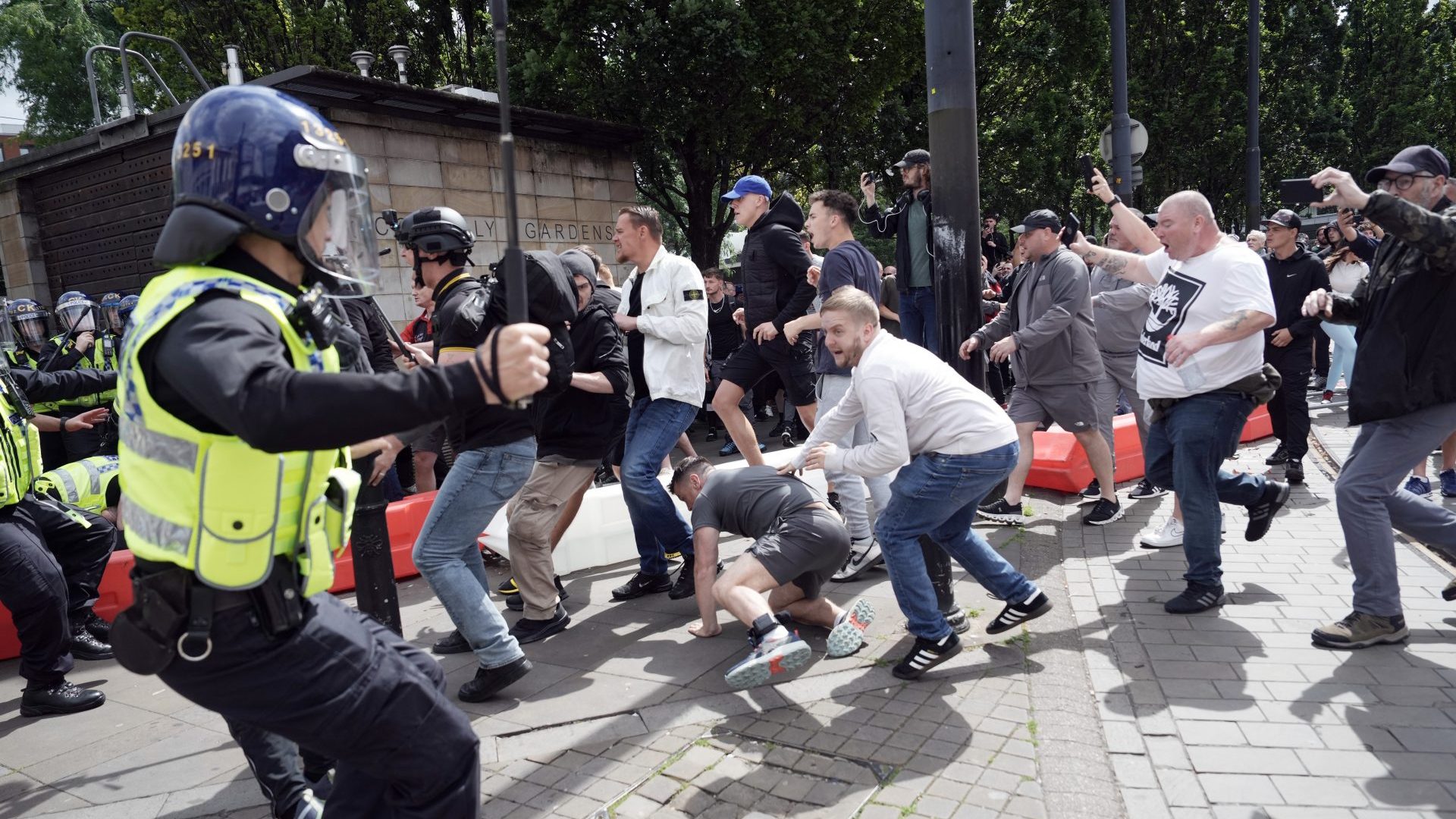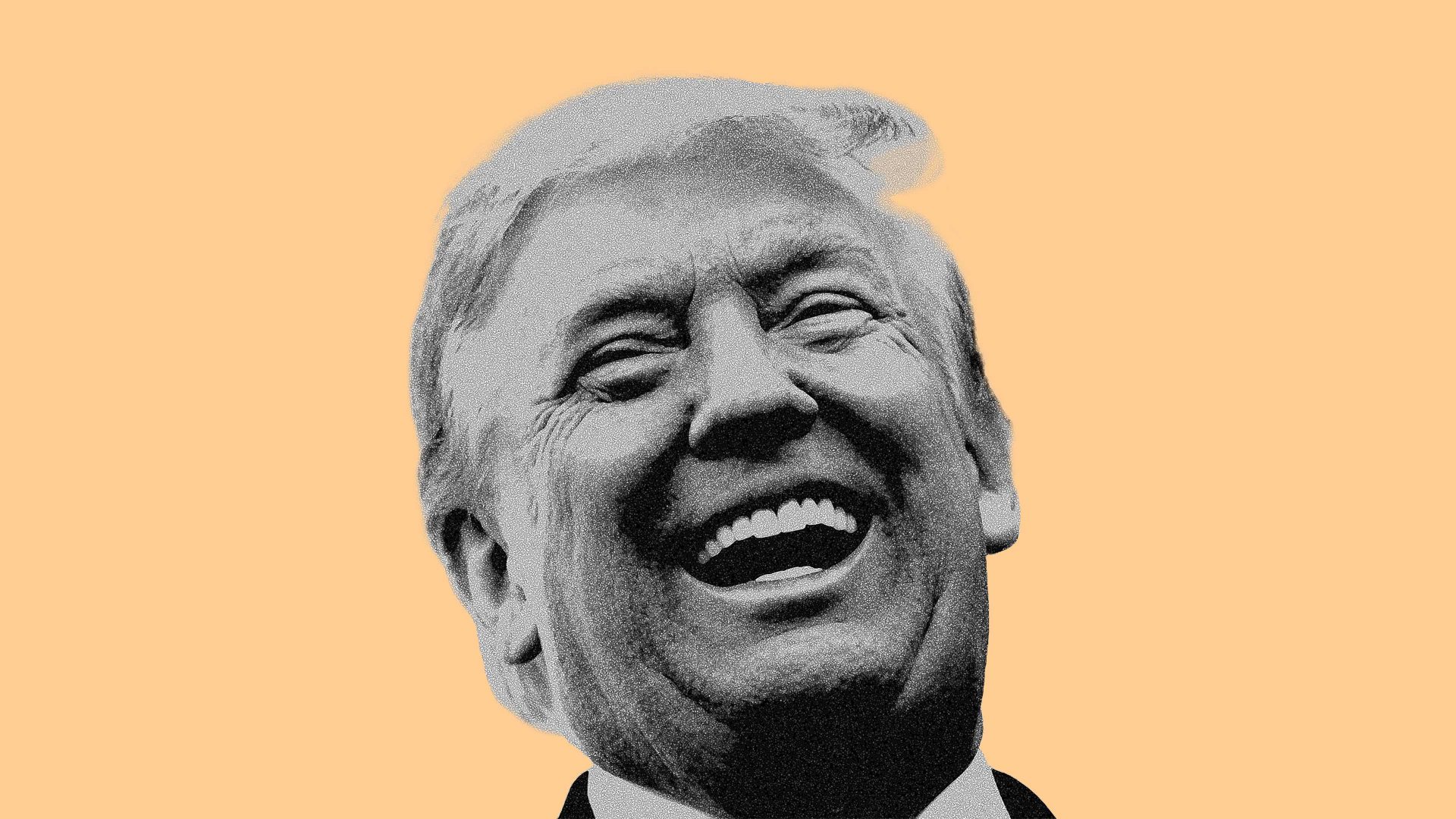A narrative of Muslims as some sort of fifth column working against the interests of British democracy has taken root in some sections of the country. It has sobering real-life implications for the stability of entire communities – not to mention the safety of individual Muslims, especially those visibly so like me.
Since the general election, we have seen this play out in dreadful fashion. Last month, riots took place in Harehills, West Yorkshire, in response to a family dispute in the Roma traveller community. Despite Muslims being among those trying to stem the disorder, fake news circulated almost instantly that this was a collective Muslim aggression on police officers. High-profile figures in the Reform Party (and their supporters) were among some of the most prominent in spreading this disinformation.
In fact, a newly elected Green Party councillor, Mothin Ali, who had faced backlash in the right wing press for declaring “Allahu Akbar, this is for Gaza” when he was elected, was at the forefront of trying to halt tensions in the community – and yet still, he was vilified and blamed by commentators who drew links between his support for Palestine and violence he was not even perpetrating.
Then came the disorder apparently sparked by the killing in Southport, where in the wake of unspeakable tragedy, the impact of fake news spurred on by virulent Islamophobia hardly needs to be spelled out. There can be no clearer example of how fractious our society has become, and how embedded Islamophobia is.
A fake Muslim-sounding name, and a thinly veiled provocation from Reform leader Nigel Farage (who suggested the police were hiding the truth about the identity of the teenage boy who killed three little girls at a dance class) is all that is needed to incite entire mobs to attack mosques and anyone on the street perceived to be Muslim.
After July 4, Farage is one of five Reform MPs in the Commons. They are matched in the chamber by five independent MPs who stood on a predominantly pro-Palestine platform, overturning significant Labour majorities without the backing of a party machine.
The teams are level in terms of numbers. Yet it seems that all are not created equal when it comes to the voters that put them there – and the double standard that exists in their treatment by the mainstream media speaks volumes about the anti-Muslim narrative that has gripped sections of the country.
While we are repeatedly told that we ignore the views of those who voted for Farage, Lee Anderson, Richard Tice and friends at our peril – and reminded once again by them that it is “not racist to be worried about immigration”, even when some voters express those concerns in a racist way – Muslim voters got no such treatment during and after the election.
Instead, they were portrayed as extreme, anti-British Islamists who have no concern for their own constituencies and are trying to muddy the pure waters of British politics with the blood of a foreign conflict.
Sensationalist, often downright Islamophobic headlines appeared in most right-leaning publications, accusing Muslim voters of dominating the election with “sanitised Islamism” or lamenting how politics has become “frightening” and “horrifying” due to the Muslim vote campaign.
Harry Cole, political editor of the Sun, ominously tweeted “Hamas gain” in response to constituencies voting for independent candidates who stood on a pro-Gaza ticket.
Throughout election night, I watched TV pundits peddle rhetoric that twisted the perfectly democratic actions of British Muslims into something nefarious and unpatriotic – from the claim that “sectarianism” has infiltrated our politics to the trope that we have been voting “in line with our faith” – as though Muslims are the only ones bothered by genocide.
We had already seen this vilification of Muslim voters after May’s local elections, when an unnamed Labour source claimed that “Hamas were the real winners” and that it was “the Middle East, not West Midlands’’ that secured independent candidate Akhmed Yakoob third place in the West Midlands mayoral vote.
But if things looked bad then, now they have metastasised into an Islamophobic free-for-all.
Abubakr Nanabawa is the coordinator of The Muslim Vote, an “anti-genocide and pro-democracy” campaign group that was a mobilising force in holding the two main parties to account during the general election. He suggests that attacks on Muslim voters in the media are part of a “desperate attempt to smear a community who have given the country hope that the two-party duopoly can be challenged”.
As The Muslim Vote sees it, “democracy is at the heart of British lives, and Muslims getting involved with the democratic system to express their dissatisfaction is what the elections are all about. People have always voted on their own values”.
This poses the question, why is it that when Muslim voters use the civic tools at our disposal, we are treated so differently to others?
Reform voters are portrayed as a neglected, stigmatised section of the electorate whose concerns have for too long been ignored by the establishment. Fans of Farage are portrayed as patriots with hearts of gold, who simply “want their country back”. They are part of an anti-establishment, anti-woke revolution to return politics back to the hands of the everyman: not a threat to democracy, but a sign that it is still functioning healthily. Unlike those Muslims, of course.
Even the racism scandals within Reform don’t seem to have had much effect in tainting their reputation in the press. Joining them after being suspended by the Conservative Party for Islamophobic remarks, Anderson was elected in Ashfield with a majority of over 5,000 votes.
Jovan Owusu-Nepaul, who ran for Labour against Farage in Clacton, spoke of a vitriolic campaign in which he was repeatedly asked where he was “really from” and experienced daily racial abuse by Reform canvassers. Georgie David, Reform’s West Ham and Beckton candidate, quit the party days before the election, saying that the vast majority of her colleagues were “racist, misogynistic and bigoted”.
The size of Reform’s vote even renewed widespread calls for an overhaul of the first-past-the-post system in favour of proportional representation. It’s impossible to even comprehend a similar conversation surrounding the Muslim vote.
Whereas the pro-Gaza stance that criticises Britain’s complicity in Israeli war crimes is seen as sinister parochialism that must be stamped out at all costs, this wave of troubling far right populism is viewed as a perfectly acceptable new chapter of UK politics.
Dr Khadijah Elshayyal, a research fellow in digital Muslim spaces at the University of Edinburgh and the author of Muslim Identity Politics, suggests that, “claims of sectarianism and the associated fear-mongering are made in bad faith and emanate from an inherent suspicion and unease with Muslim political agency. It relies on longstanding racialised tropes including implications of disloyalty and ulterior agendas.”
The problems with this racist double standard go beyond simply legitimising the extreme-right views of many Reform voters while simultaneously discrediting Muslim voters as Islamists who have no place in British democracy. It conveniently ignores the fact that, like all voters, Muslims are concerned with multiple issues.
While the plight of Gaza has captured hearts, in many ways it has simply been the catalyst for ushering in the possibility of a new kind of politics. And while Keir Starmer was castigated for condoning the cutting off of fuel and water to a besieged population of 2 million, Labour’s refusal to lift the two-child benefit cap has also caused anger.
Given how 50% of Muslim households live in poverty compared with 18% of the rest of the country, it’s little wonder many British Muslim voters abandoned a Labour Party that seemed to offer no hopeful alternative to 14 years of calamitous Tory rule.
Yet, these concerns are hidden beneath accusations that our support of Palestine makes us extreme, antisemitic and unpatriotic.
Shaheena Uddin is a London-based journalist who spent the run-up to the election hosting and reporting on a number of local hustings in west London for Ealing News. One event was held at Acton mosque and even with a majority of Muslims in attendance, Shaheena observed that, “while the genocide in Gaza was of course at the forefront of a lot of our minds, we discussed a variety of topics such as the two-child benefit cap and the cost of living crisis.”
According to Shaheena, the hustings “had a broad range of attendees who asked all kinds of questions, from an elderly Muslim raising concerns on the long waiting times in the NHS to a recent university graduate who spoke up about rising tuition fees and how much they are in debt,” casting doubt on the media’s depiction of angry Muslims more concerned with issues abroad than in their local community.
Of course, politics is a messy business and there have been some reports of undemocratic behaviour in constituencies where local independents were challenging seasoned incumbents. Jess Phillips and Wes Streeting both spoke out about receiving abuse and death threats from those opposed to their party’s stance on issues like Gaza.
Yet the fixation with denigrating Muslim political participation and allowing a small minority of individuals to taint the democratic engagement of an entire demographic speaks to the ease with which Muslims are written off as a violent mob inherently opposed to the rule of law. Phillips herself dismissed the implication that her opponents were behaving aggressively because they were Muslim, insisting that “they did it because they’re idiots”.
We only have to look back to the murder of Jo Cox to know that violence against politicians is hardly a Muslim problem. Yet, despite this, we still saw headlines writing off entire “pro-Palestine” areas (whatever that means, given that the majority of the UK backs a ceasefire) as hotbeds of violence and sectarianism that threaten the sanctity of our politics.
Ultimately, it’s telling which supposedly “single-issue” platforms seem to be acceptable and which do not. For all intents and purposes, Reform’s primary and defining concern is immigration.
But it could easily be argued that Reform voters are obsessed with an issue that doesn’t directly affect their lives. After all, Clacton is 95.3% white with only 2.4% of people being non-UK passport holders; 93% of Ashfield’s population was born in England – a figure that has actually gone up in the last decade rather than down. Ironically, the areas with the highest migration levels, like London, were where Reform performed worst.
Meanwhile, British Muslims are told that they are wrong to base part of their vote on events thousands of miles away. Yet the complicity of our government in providing diplomatic cover for Israel’s war crimes, as well as continuing to supply some of the arms that make them possible, is surely something that affects all of us who pay our taxes.
Whether we live in Great Yarmouth, Southport, Harehills or east London, our government’s moral abdication in the destruction of Gaza is something we all ought to care about – and dismissing Gaza as an irrelevant foreign conflict that only concerns radical Islamists allows politicians to escape culpability.
Meanwhile, in an atmosphere of systemic anti-Muslim sentiment that has metastasised since the war on terror and the Tories’ “hostile environment” and has now escalated since the election, it doesn’t matter if Muslims do nothing wrong: we are still the enemy. And our mere presence in Britain is considered a threat.
Nadeine Asbali is the author of Veiled Threat: On being visibly Muslim in Britain (Biteback)



